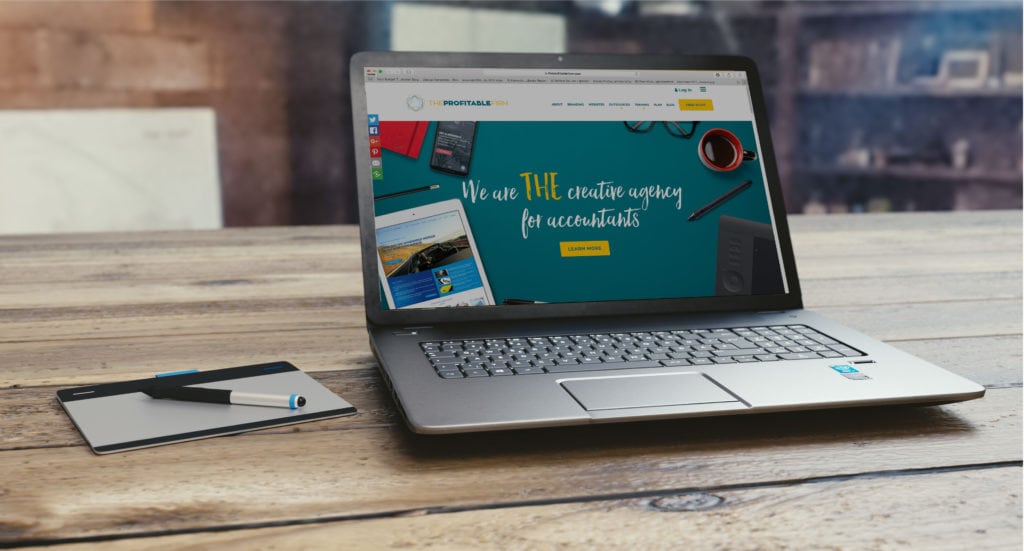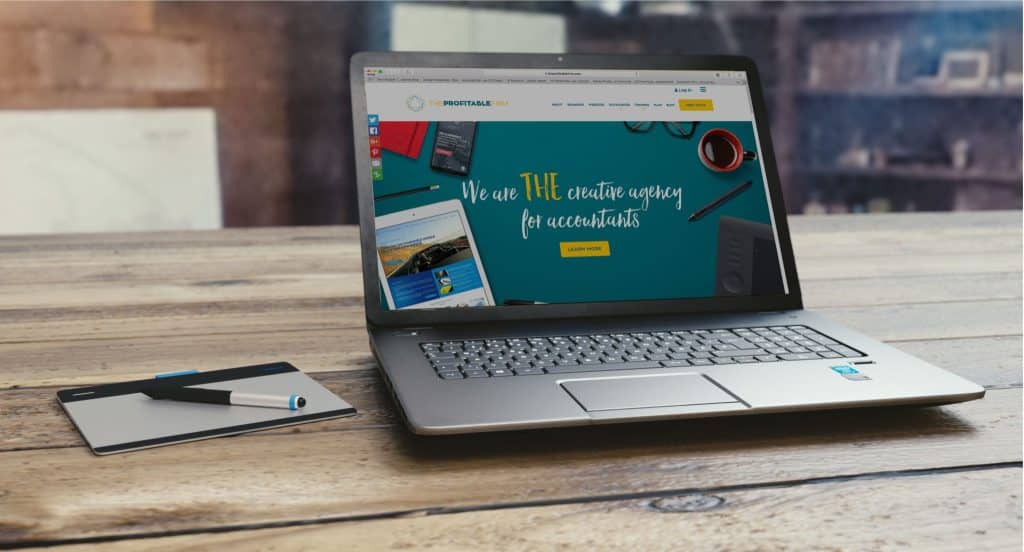
Every accountancy firm needs a custom website.
Whether you throw it together yourself using Rocketspark, or you work on the strategy and content yourself and get a website designer to make it look good, or you hire an agency to get a custom designed website built exclusively for your accountancy firm, with carefully crafted design and layouts and strategy and content that is unique to your firm alone.
But one of the options that i believe isn’t really an option is to find a nice looking template, throw some stock images into it, and then “get someone to write the copy for it”.
We’ve been asked to do this at PF a few times, and the answer is always the same.
No.
It’s not because we don’t want to be helpful, or because we think every firm needs to spend thousands on a custom built website. Not everyone has the budget, or is in the right place yet, being familiar and confident with your business model or niche yet. It’s perfectly fine with me if you build it yourself or do the best you can with what you have.
But filling in a template with some words doesn’t work, and here’s why. (I’ll also talk about what does work, instead.)
1. The words are the most important part.
The whole point of a website is that it speaks to the people you want to buy from you.
They connect with you, feel like you know them, want to do something as a result of being on your site.
When you pick a nice looking WordPress template, and then write some words to fit into the boxes that have already been laid out in a particular way, you’re skipping the most critical part of a website project.
The first thing you want to do is figure out the problems and issues your buyers are actually facing, so that you can build your entire website around this.
When you do it the other way round, you’re not putting the buyer and their feelings and emotions at the centre: you’re putting some random graphic designer’ s layout at the centre.
2. It often reflects a lack of investment in your website project.
Again, I’m not necessarily talking about cash investment. You do not have to spend big bucks (or pounds) to have a website that people connect with and causes them to ask you a question or engage with you in some way.
The biggest reason I’ve seen accountants use for approaching a website build in this way is to save money. You’ve got a template you bought a while ago. You know a website designer who is willing to give you a template they designed. Someone else built a website that another business decided they didn’t want, and you can have it for cheap.
It sounds really appealing, but it’s a false economy. Remember that the bitterness of poor quality lasts long after the enthusiasm of a low price has faded.
By the way – there’s nothing wrong with using a template. We’ve suggested to a significant number of accountancy firms that all they needed was a slight refresh of their website, and we used their existing WordPress template to do so. For firms whose budget is lower or they only need something simple they can edit themselves, we’ve built websites on Rocketspark using the existing templates provided. The template is not the problem: it’s the approach you take to the template that can be.
3. It’s too tempting to write “professional speak”.
This approach of filling in words almost always leads to a tendency to write in a way that you think sounds “professional”, rather than writing words that appeal to the type of people you want to work with. “Professional” can often be interpreted to mean boring, corporate, stiff, and not really saying anything of value.
Remember that your website visitor may be coming to you from a place of distrust. As @HarrisonAmy [LINK TO TWITTER] said at the recent #cmalive18 conference, you have to recognise they have doubts and worries, and “you need to show their doubt is valid – and then address the difference you provide.”
However…don’t despair! If you’re committed to having a website that is amazing in the way it speaks to your prospects, here’s what DOES work instead of filling in a template with random words.
Get more involved in your website project.
The more you talk to your website designer or agency, share stories, talk with them about the frustrations and confusions your buyer might have about accounting, the better your site will be.
It’s tempting as an accountant to presume that you’re not creative and you’re not a designer so you need to back off and let the creatives do the work. Whilst that could be true for things like actually designing and building the back end of a website page, it’s far from true that you need to back off. Find a marketer or agency that you trust, who will listen to your ideas and take the best from them.
Get help with the strategy of your home page.
Even if the rest of the website isn’t completely amazing yet, having a well-strategised and well-designed home page can make a huge difference to the effectiveness of your site. Get a good designer or agency or freelancer to help you work on the purpose of your site, its layout and structure, and perhaps give a hand with some of the words. (You may quickly find that you love your home page so much you want their help with the other pages and then it becomes a full website rebuild, but it’s okay to start simple.)
Write some of the content yourself.
I know you don’t feel like a copywriter. Or a marketer. Or a writer.
That’s actually what often makes you the best writer for some of the content on your site – because you can write like you speak. Write like you’re talking to a human being.
Amy Harrison shared some ways you can avoid “professional speak”, including:
- We understand you might not believe this is true (for example, the fact that the more time you spend with your accountant the better your profits can be)
- “You don’t need to be….” (a bookkeeper, good with numbers, clever at finances, etc)
- Highlight frustrations, don’t call out competition. (No need to say “other accountants do this or that, and we don’t”. Simply point out what you know your buyer is frustrated with, and how you deal with it.)
- Think, how would they describe it to a friend? Would they really say, “I want to save time, save costs, and increase profits”? Or, “I use my accountants because they use award winning cloud accounting software”? Figure out how they would say it, and say that.
- Ask yourself, “why might they not trust me? Why might they hate my industry?” Be drastic about it. Many prospective buyers of accountancy firm services don’t know what an amazing accountant is like. Write for those people.
- Don’t assume your terminology means anything to them. Do they really use words like cloud accounting, MTD, VAT specialists, free consultation, tech savvy, tax efficiency? Use their terminology, not yours.
Give the content writing thing a go. You can always have someone edit it slightly or rearrange it a bit, but your words will be a great starting point.
Your website will never be finished.
Rather than discouraging you, I hope this encourages you. It’s okay if your website isn’t perfect, isn’t completely finished, doesn’t have all the pages, is missing some of the photographs or custom design work you want.
My rallying cry of “not perfect but done” is not excuse to do bad work, or to throw something together that’s rubbish but at least it’s out there. I also say, “not perfect but good”.
Make it good, and get it out there. You’ll keep tweaking it over the years. You’ll build multiple websites for your firm, and each one will reflect the changing journey your business is on. And that’s a good thing.

